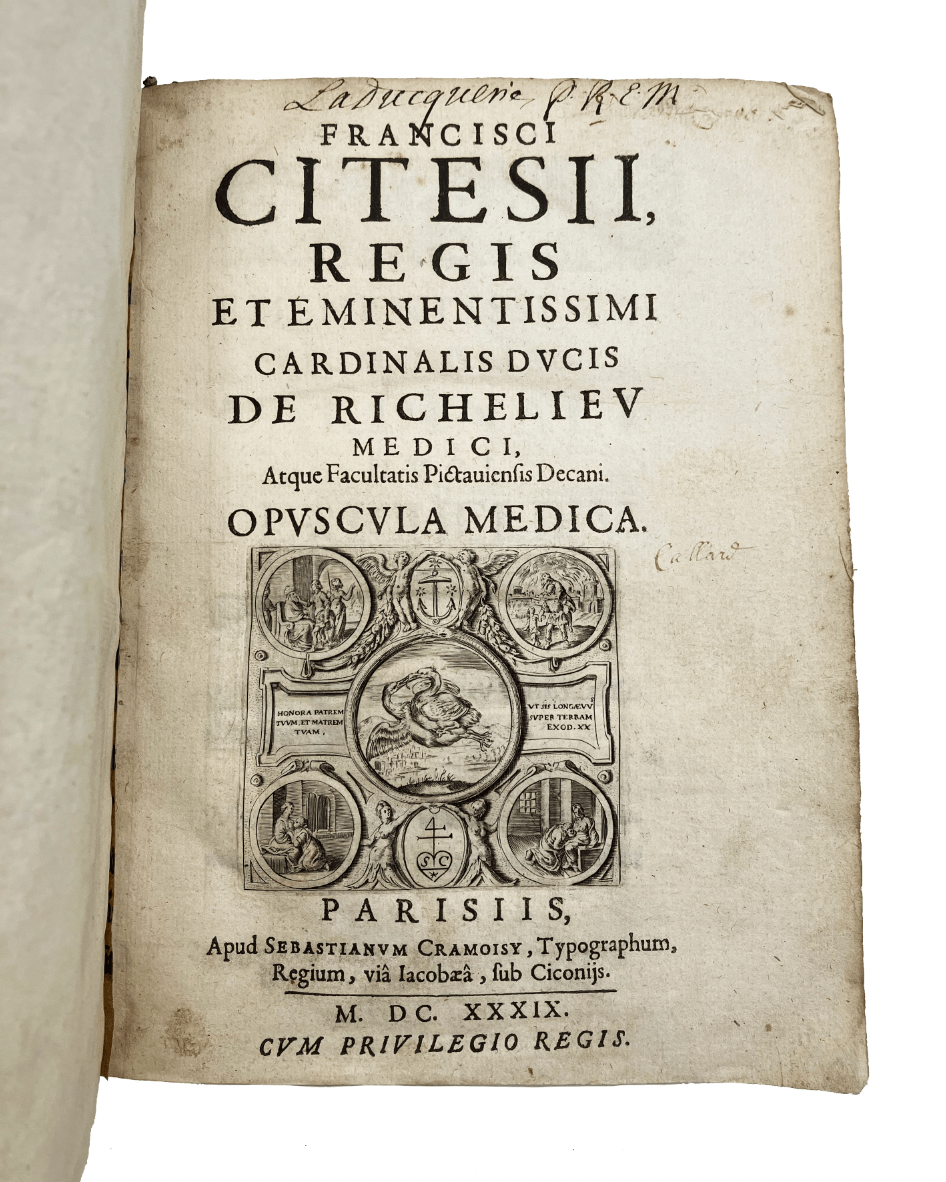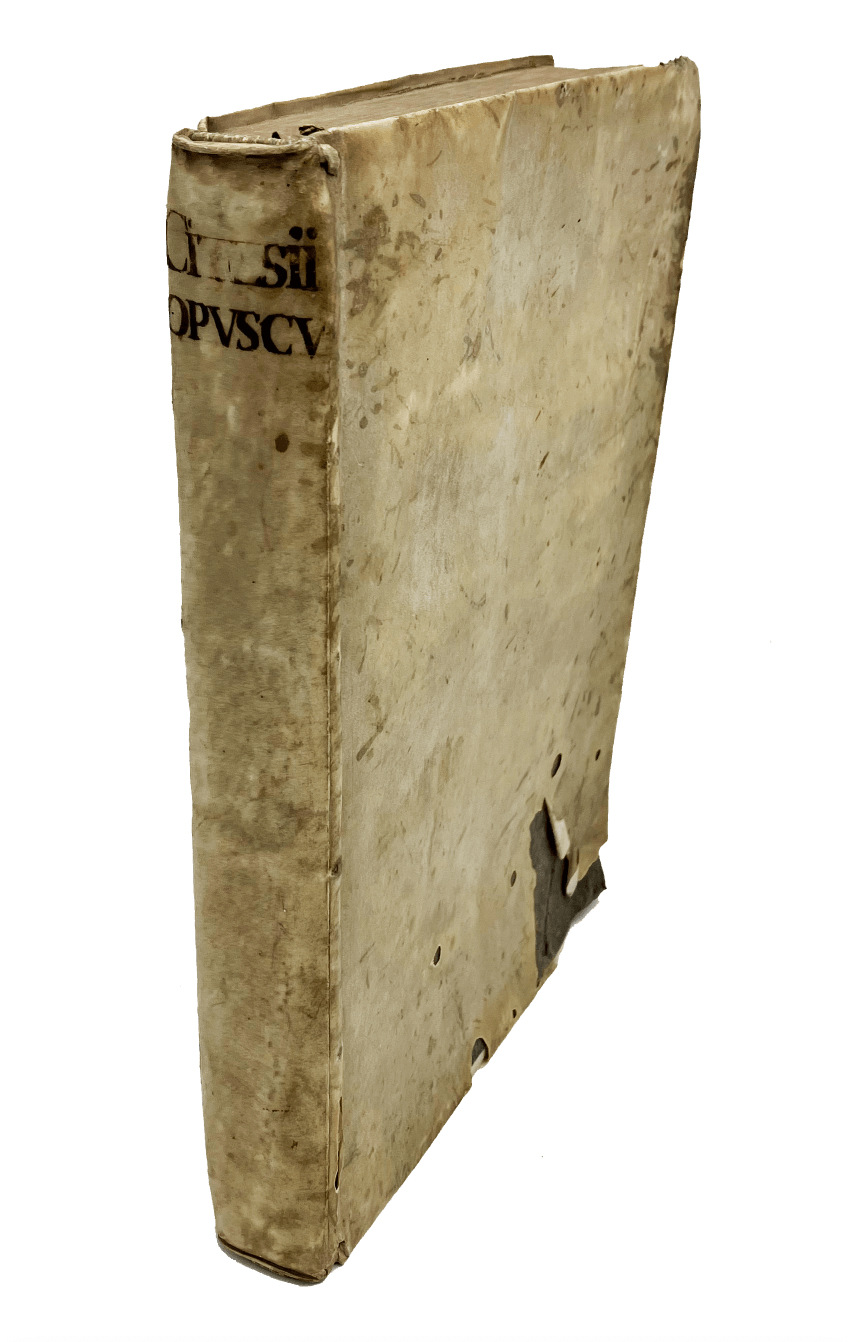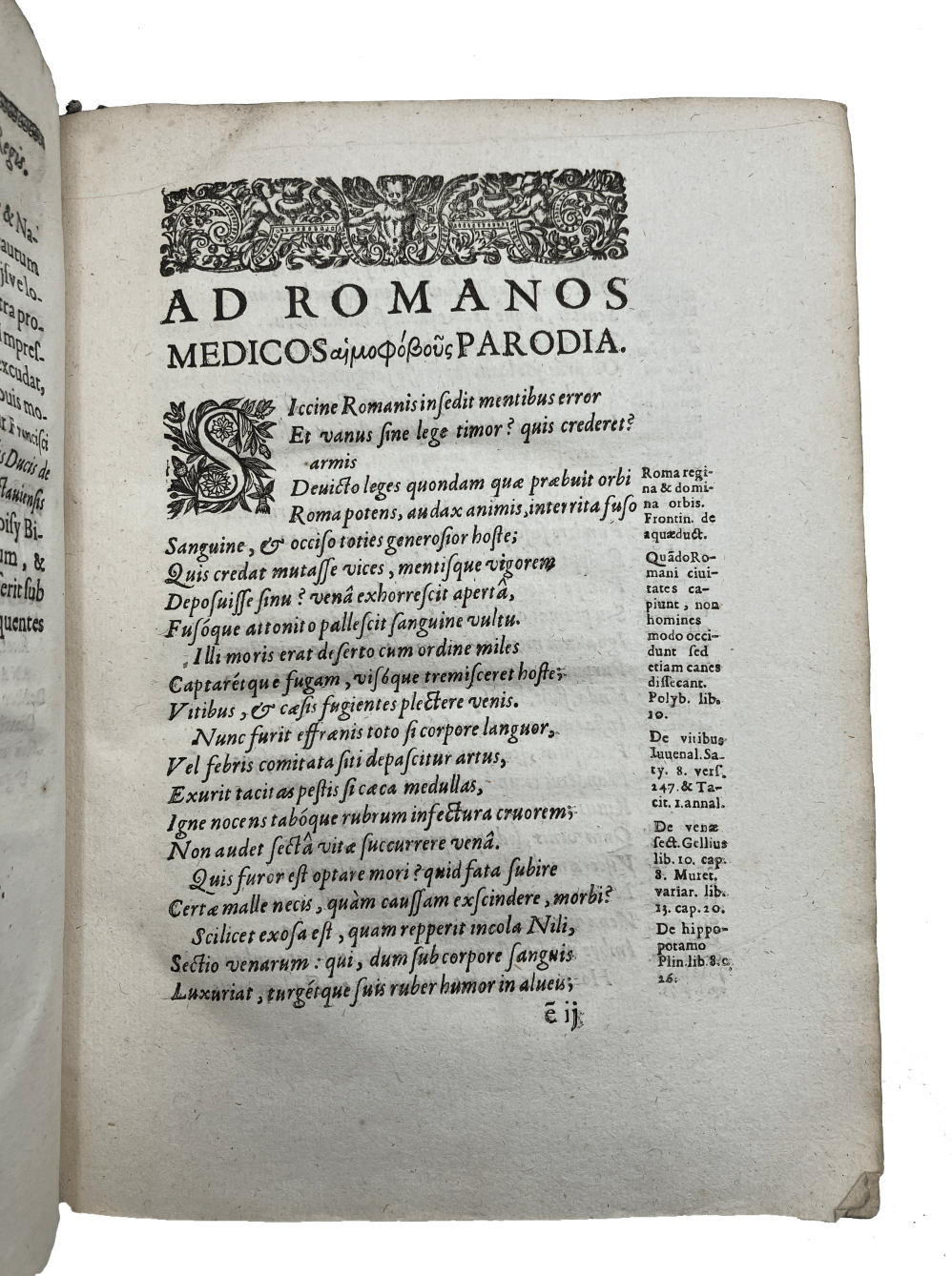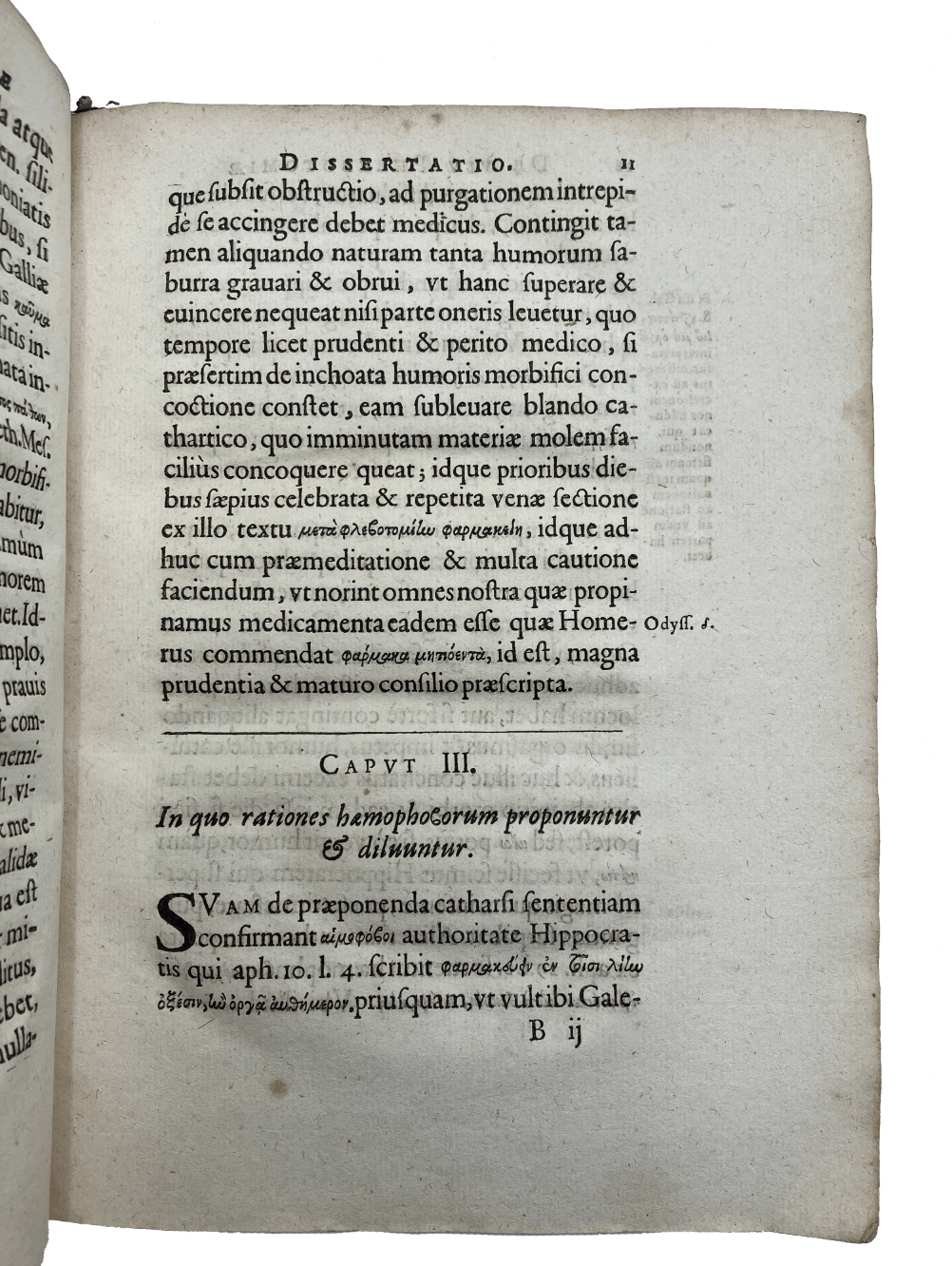CITOIS, François.
CONTRA “HAEMOPHOBES”
Opuscula medica.
Paris, apud Sebastianum Cramoisy, 1639£1,850.00
FIRST EDITION thus. 4to. pp. [16], 302, [ii]. Roman letter with italic, some Greek. Engraved printer’s device to t-p. Woodcut initials and headpieces. Early inscription to t-p, “Callard”, later inscription of “La Ducquerie, P.R.E.M.”, with annotation possibly in the same hand (“ad deum”) and underlining to dedication to Richlieu, inscription abraded away from head of t-p with slight loss. Corrections in a contemporary hand to ff. H3r and K2v, faded; note in the same hand on popular beliefs in the astrological causes of Colico Pictonum to f. Z1r (“humanis” for signa foemininis). Marginal notes and underlining in red crayon and ink to treatise on the plague. Contemporary limp vellum, upper wrapper torn and ink marked, upper pastedown torn revealing inscription to rough card used to reinforce wrappers, “Au Sieur Pierre Poisson, Marchand Librairie.” Vellum spineguards from fifteenth-century liturgical ms. in gothic script with musical notation. Slight worming from quire Q onwards, occasionally slightly affecting text, a very good copy.
First edition of the collected works of François Citois (1572-1652), dean of the medical faculty of Poitiers. The book is chiefly an attack on the “haemophobic sect” of physicians, who were opposed blood-letting. It is dedicated to Cardinal Richelieu (1585-1642). Citois, an adherent of Galenic, humoral medicine, makes his declaration in favour of phlebotomy, followed by a Latin poem satirising Roman doctors for their haemophobic practices. Two works are dedicated to a controversy originating in 1602, surrounding the case of “anabiosis” in a young girl from Confolens in the Poitou, who was supposed to have lived for some years without food or drink. Citois defends the validity of claims made about the case and attacks those who are sceptical. Citois also published in French, including his work on the plague, on which he collaborated with Richelieu, which appears here; the bookseller’s letter to the reader makes clear that without Richelieu it would never have seen the light of day. France had suffered several bad outbreaks of plague during the 1620s.
Also here is Citois’s entertaining work on the ‘new’ disease Colico Pictonum, first published 1616, the name by which this phenomenon was afterwards known. Citois discusses the symptoms, the popular and probable causes, and the popular treatments, warning against the use of wine. In particular Citois singles out Poitou wines, which are naturally more acidic and sour, but makes no mention of the lead that was frequently added to ameliorate their harshness. Later, lead poisoning was suspected to be the cause; this was proved in 1767 by Sir George Baker in his study on the Devonshire cider season (see Osler 2860).
Only two copies recorded in US. USTC 6031513. Not in NLM or Wellcome; Waller 1984; not in Osler; not in Heirs of Hippocrates.





